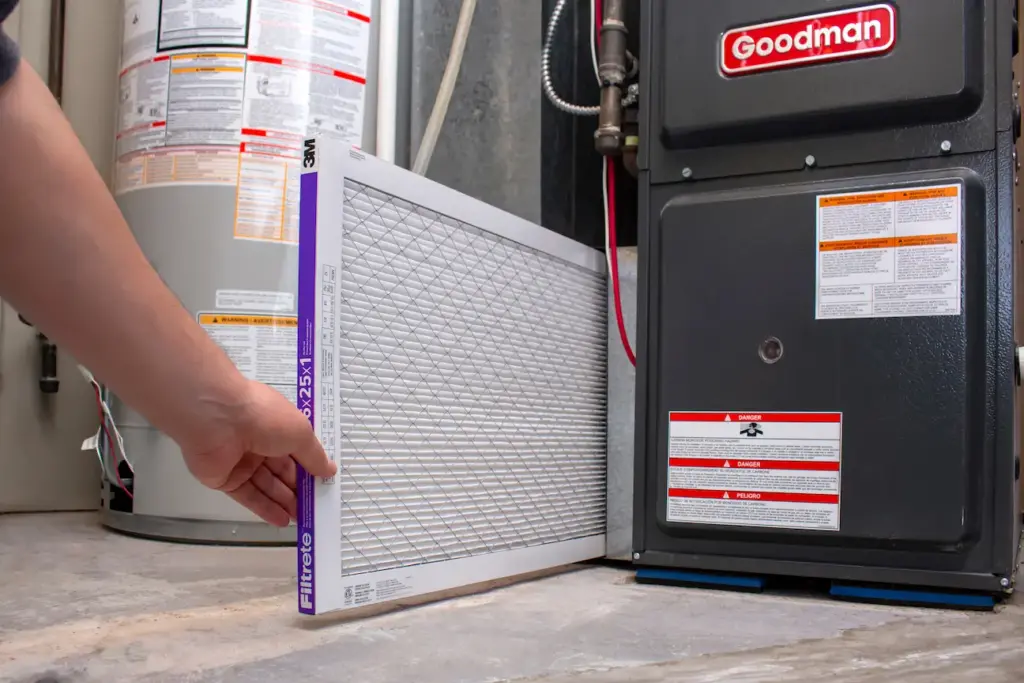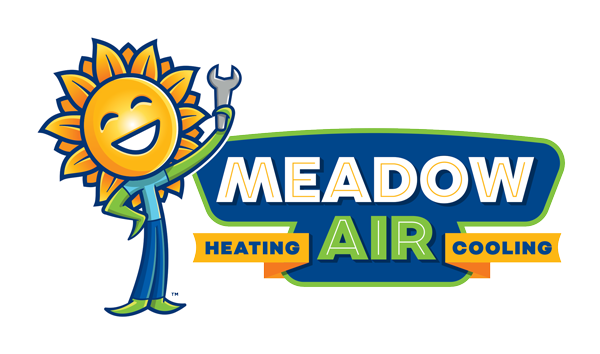What Are the Different Types of Furnaces

Whether it’s the chill of winter or the need for efficient heat during the transitional months, having the right furnace is essential to the comfort of your home.
But how do you know which type is right for your home? There are many different types of furnaces, each with its own pros and cons.
From energy efficiency to heating capacity, the right furnace hinges on your specific needs, the climate in your area, and your budget constraints.
If you’re not sure what furnace to get, call us today and we can help you decide what type of furnace is best for your home.
How a Furnace Works
The basic functioning of a furnace involves several key components.
First, there is a burner where the fuel is ignited and burned. In gas or oil furnaces, the burner mixes the fuel with air and ignites it, creating a controlled flame. In an electric furnace, the electricity directly generates heat without a flame.
The heat generated by the burner is then transferred to a heat exchanger, a metal component within the furnace. The heat exchanger absorbs the energy from the burning fuel and becomes hot. As air passes over or through the heat exchanger, it gets heated up.
This heated air is then distributed throughout the building via a network of ducts, pipes, or vents.
To maintain a comfortable temperature, furnaces are equipped with thermostats. These devices monitor the temperature of the air in the building and send signals to the furnace to turn on or off as needed.
When the temperature falls below the desired level, the thermostat signals the furnace to ignite the burner and start the heating process.
Once the desired temperature is reached, the thermostat sends a signal to the furnace to shut off, stopping the production of heat.
Types of Furnaces
Natural Gas Furnaces
Natural gas furnaces, primarily used in regions with cold weather, are sought after for their efficiency and cost-effectiveness. They use natural gas as their fuel source, which is relatively inexpensive and abundant in many areas.
These furnaces create heat by burning the gas within a combustion chamber, and the resulting heat warms air that is then circulated throughout a home.
However, accessibility to a natural gas line is mandatory, which can limit their use in remote or rural areas.
Oil Furnaces
Oil furnaces are commonly found in places where natural gas is scarce. These systems use oil to create heat, and while they are less efficient than their gas counterparts, they produce higher BTU (British Thermal Unit) output and, therefore, can generate more heat.
The primary drawback lies in the requirement for a separate storage tank for the oil, along with the need for regular deliveries which can be expensive and can sometimes be interrupted due to adverse weather conditions.
Electric Furnaces
Electric furnaces convert electrical energy directly into heat, making them safer as they don’t involve combustion. They are usually smaller in size, making them ideal for homes with limited space.
The installation process is relatively straightforward, and the upfront cost is usually lower compared to gas or oil furnaces.
The main disadvantage is their high operational cost, as they can lead to substantial electricity bills, particularly in areas where electricity prices are high.
Propane Furnaces
Propane furnaces serve as an alternative to natural gas furnaces, especially in areas where natural gas infrastructure is not readily available.
These furnaces work by burning propane, a type of liquefied petroleum gas (LPG), to produce heat.
While they do provide reliable heat and can be particularly beneficial in rural regions, they are generally more expensive than natural gas. Plus, homeowners or businesses need to allocate space for a separate storage tank.
Factors to Consider When Choosing a Furnace
Energy Efficiency
Energy efficiency is a critical factor to consider when choosing a furnace. It refers to how well the device converts its fuel source into heat. High-efficiency models can help lower your energy bills and reduce your environmental impact.
Many furnace manufacturers provide an Annual Fuel Utilization Efficiency (AFUE) rating for their products. The higher the AFUE rating, the more efficient the furnace.
Cost
Cost considerations include not only the initial purchase and installation price of the furnace but also ongoing operational costs. While high-efficiency furnaces may cost more upfront, they can save you money in the long run through lower energy bills.
Don’t forget to factor in maintenance costs as well, as some furnaces may require more frequent servicing than others.
Size and Heating Capacity
The size and heating capacity of a furnace should be appropriately matched to the size of your home for optimal efficiency.
A furnace that’s too small may not adequately heat your home on cold days, while one that’s too large may cycle on and off frequently, reducing efficiency and lifespan.
Professionals use calculations based on the size, insulation level, and climate of your home to determine the ideal furnace size.
Fuel Source Availability and Price
The availability and price of different fuel sources can greatly influence your choice of furnace. Natural gas, while often the most economical, is not available everywhere.
Electricity is widely available but can be more expensive in some areas. Oil and propane can be alternatives where natural gas is not available, but they require storage and delivery.
Climate and House Size
Your local climate and house size can also influence your choice of a furnace. In colder climates, a high-efficiency gas furnace may be the most economical choice.
In milder climates, an electric or heat pump furnace may be more cost-effective. Larger homes may require a furnace with a higher heating capacity than smaller homes.
Environmental Impact
Different types of furnaces have varying levels of environmental impact, largely related to their fuel source and efficiency.
For example, natural gas furnaces emit less carbon dioxide than oil furnaces. High-efficiency furnaces also use less fuel and emit fewer greenhouse gases.
If environmental impact is a significant concern for you, consider looking for a furnace with a high AFUE rating and low emissions.
Call Us for Your Heating Needs
At Meadow Air, we pride ourselves on providing superior heating services to keep your home warm and comfortable throughout the coldest months.
Our highly trained and certified team is equipped with the tools and knowledge to make sure your furnace operates at peak performance.
Whether you need a routine furnace tune-up, urgent repair, or a complete installation, Meadow Air has got you covered.
We understand that every home is unique, and that’s why we offer tailored solutions that best suit your specific heating needs.
With our round-the-clock support, we’re always ready to respond to any heating emergencies, ensuring minimal disruption to your comfort.
